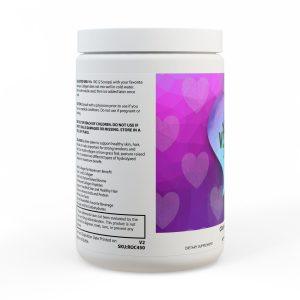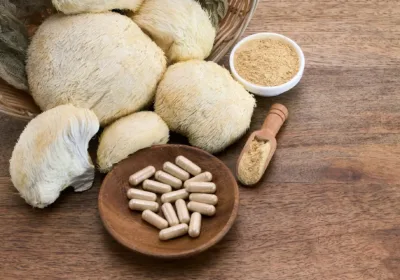
Mushroom Coffee: The New Health Trend Worth Trying
Mushroom Coffee: The New Health Trend Worth Trying
Amid the burgeoning landscape of health-centric beverages, mushroom coffee emerges as a novel fusion that has piqued the curiosity and palates of wellness enthusiasts. Known for intertwining the robustness of traditional coffee beans with the purported therapeutic prowess of functional fungi, this concoction not merely promises a unique savor but also positions itself as a burgeoning alternative in the realm of rejuvenating drinks. Moreover, the rapidly expanding mushroom coffee market, projected to burgeon from a valuation of roughly USD 2.6 billion in 2022 to an anticipated USD 4.12 billion by 2030, suggests a burgeoning trend that’s capturing the interest of consumers and industry players alike.
Delving into the realm of mushroom coffee, this article aims to shed light on the array of benefits it harbors, from lions mane coffee’s potential for enhanced mental clarity to chaga’s contribution to immune fortification. The article surveys the nutritional merits that position mushroom coffee as a potentially top rated choice for conscious consumers and elucidates how it stands apart from conventional coffee, often associated with post-caffeine lulls. Mushroom coffee reviews frequently praise its ability to provide a measured energy lift without the crash commonly associated with its traditional counterpart—could this be what makes it the best mushroom coffee option available? Continue reading to discover how integrating mushroom coffee into your diet might not only invigorate your mornings but also bolster your overall well-being.
What is Mushroom Coffee?
Mushroom coffee is a unique blend that marries the familiar taste of coffee beans with the earthy notes of ground medicinal mushrooms. This innovative drink offers a flavor profile that coffee aficionados might find surprisingly similar to their beloved traditional brew. Here’s a deeper dive into what constitutes mushroom coffee:
- Mushroom Selection and Preparation: The mushrooms chosen for this coffee, including Chaga, Cordyceps, Lion’s Mane, and Reishi, are carefully dried and undergo an extraction process. This method is designed to harness their beneficial compounds, many of which are adaptogens known to support the body’s stress response mechanisms. Notably, these functional fungi offer an array of potential health perks without overpowering the coffee’s taste.
- Caffeine Content and Effects: Unlike your standard cup of joe, mushroom coffee typically contains less caffeine. This reduced caffeine level may contribute to a more balanced energy boost, steering clear of the dreaded midday crash. It’s this gentle stimulation, coupled with the potential stress-reducing properties of medicinal mushrooms like Lion’s Mane and Reishi, that has piqued the interest of those seeking a calmer coffee experience.
- Considerations for Consumption: While mushroom coffee is celebrated for its potential health benefits, it’s essential to be mindful of individual dietary needs. For instance, those with kidney issues or grain sensitivities might experience digestive discomfort. Furthermore, the financial aspect cannot be overlooked, as mushroom coffee often comes with a higher price tag compared to regular coffee. It’s crucial to weigh both the nutritional and economic factors before making the switch.
Despite the growing popularity of mushroom coffee and its purported advantages for heart health and cognitive function, it’s important to approach this trend with a level of caution. There’s a lack of concrete evidence directly linking mushroom coffee to specific health outcomes, and certain individuals, such as those on medication, with health conditions, or who are pregnant or breastfeeding, should avoid it. Always consult with a healthcare provider before integrating mushroom coffee or any new dietary product into your routine.
For those curious about trying this beverage, it’s worth noting that mushroom coffee blends are lower in caffeine than regular coffee but still contain more caffeine than decaf options. This makes it an intriguing middle ground for those looking to moderate their caffeine intake while exploring the benefits of mushroom coffee. Whether it’s the top rated mushroom coffee or a Lion’s Mane coffee variant, the market offers a range of options to suit various preferences and expectations. As always, it’s advisable to sift through mushroom coffee reviews to find what’s the best mushroom coffee for your taste and lifestyle.
Health Benefits and Nutritional Value
Mushroom coffee, a blend of ground mushrooms and coffee beans, is gaining traction as a healthful alternative to traditional coffee. Here’s a look at the potential health benefits and nutritional value this trendy beverage may offer:
- Adaptogenic Properties: The key to mushroom coffee’s stress-combating abilities lies in adaptogens, natural substances found in the mushrooms used in these blends. Adaptogens are said to help the body manage stress more effectively, potentially leading to improved well-being and balance.
- Popular varieties like Reishi and Lion’s Mane have long been used in traditional medicine and are now making their way into our coffee cups, offering a modern twist on ancient wellness practices.
- While the science is still emerging, early research suggests these adaptogens could contribute to better stress response and overall vitality.
- Caffeine Content: For those sensitive to caffeine, mushroom coffee presents a middle-ground option. With less caffeine than regular coffee but more than decaf, it provides a milder energy boost that may reduce anxiety and improve sleep quality for some individuals. This could be particularly beneficial for those looking to lessen their caffeine intake without giving up the ritual of a warm cup of coffee.
- Digestive Considerations: It’s important to note that mushroom coffee may not be for everyone. Those with specific health conditions, such as kidney issues or sensitivities to grains, might experience digestive discomfort. In particular, Chaga mushrooms contain high levels of oxalates, which could exacerbate kidney stones in susceptible individuals.
- Economic and Nutritional Factors: The cost of mushroom coffee is approximately double that of traditional coffee, making it a more significant investment. Additionally, while the beverage contains beneficial compounds, nutrition experts suggest that consuming whole mushrooms may offer more substantial health benefits due to their fiber content and unprocessed nature.
- Preparation Variety: Mushroom coffee can be enjoyed in several ways, whether you prefer a latte, cappuccino, mocha, Americano, or simply black. This versatility means that there’s likely a mushroom coffee preparation that can fit into your existing coffee routine.
While the benefits of mushroom coffee are compelling, it’s essential to approach this trend with an informed perspective. Most studies on the health effects of medicinal mushrooms, including those in mushroom coffee, have been conducted on animals or in a lab setting, with few involving human trials. Therefore, while mushroom coffee is generally safe for most people to try, it’s crucial to consult with a healthcare provider, especially for those with pre-existing health conditions or who are taking medications.
In summary, mushroom coffee offers a unique combination of taste, potential health benefits, and a gentler caffeine experience, making it an intriguing option for those looking to explore the latest in health trends. Whether you’re drawn to the top rated mushroom coffee for its reputed benefits or are curious about what’s the best mushroom coffee for your palate, it’s always wise to consider mushroom coffee reviews and research before diving in.
Comparing Mushroom Coffee to Traditional Coffee
When considering a switch from traditional coffee to mushroom coffee, it’s important to compare the two on several fronts. Here’s how they stack up against each other:
- Caffeine Content: Mushroom coffee offers a unique advantage for those looking to reduce their caffeine intake. While a typical cup of coffee contains about 95 mg of caffeine, mushroom coffee generally has less, making it a milder alternative that can still provide an energy boost without the jitters or crash often associated with regular coffee. This makes mushroom coffee an appealing choice for those sensitive to caffeine or looking to cut back on their consumption (Om Mushrooms).
- Nutritional Profile: Beyond caffeine, mushroom coffee brings a variety of nutrients to the table. It typically includes antioxidants, vitamins, and minerals from the mushrooms, as well as essential amino acids. These components contribute to a more complete nutritional profile compared to traditional coffee beans alone. Additionally, the prebiotic fiber found in mushroom coffee supports gut health by fostering the growth of beneficial bacteria (Reddit).
- Health Benefits: The medicinal mushrooms used in mushroom coffee, such as Lion’s Mane and Cordyceps, are renowned for their adaptogenic properties. These adaptogens may help the body better respond to stress and offer potential health benefits like immune support and enhanced focus. However, it’s worth noting that more research is needed to fully substantiate these claims, particularly in human studies. Despite the lack of conclusive evidence, many users of mushroom coffee report experiencing these benefits, contributing to the product’s growing popularity (Partstown).
When weighing the pros and cons, it’s also essential to consider the economic aspects and potential interactions with medications. Mushroom coffee often comes at a higher price point, and its safety profile, while generally good, is not as well-established as that of traditional coffee. For those interested in exploring mushroom coffee, brands like MUD/WTR and Four Sigmatic have become popular choices, offering a range of blends to suit different tastes and preferences (Forbes).
In summary, mushroom coffee distinguishes itself with a lower caffeine content, a richer nutritional profile, and the potential for health benefits, albeit with a need for more research and a slightly higher cost. It’s a trend that’s catching on among those who seek a healthier lifestyle without giving up the comfort of a warm cup of coffee.
How to Incorporate Mushroom Coffee into Your Diet
Incorporating mushroom coffee into your diet can be a simple and enjoyable process. Here’s how you can get started:
- Brewing Your Blend: Begin by mixing equal parts of mushroom powder and ground coffee beans. This blend can then be brewed using your preferred method, whether it’s a drip coffee maker, French press, or even a simple pour-over. The key is to find the right balance for your taste buds, as the earthy tones of the mushrooms can complement the rich flavor of the coffee beans. For detailed recipes and brewing tips, you can explore various methods at Real Mushrooms.
- Understanding Mushroom Types: Each type of mushroom brings its own set of nutritional benefits to your cup. Reishi may help alleviate stress, Lion’s Mane is celebrated for its cognitive benefits, Chaga is known for its antioxidants, and Turkey Tail is reputed for its immune-boosting properties. By choosing the right mushroom for your needs, you can tailor your coffee experience to support your health goals. It’s important to ensure that the mushroom extracts you use are made from whole mushroom fruiting bodies and free from fillers, to truly reap the benefits of mushroom coffee.
- Adjusting Caffeine Intake: If you’re looking to reduce your caffeine consumption, mushroom coffee is an excellent choice. With approximately half the caffeine of a regular cup of coffee, it provides a gentler energy lift. This can be particularly beneficial for those who experience jitters or anxiety from too much caffeine. However, be aware of potential digestive issues, especially if you have sensitivities to grains or existing kidney problems. Mushroom coffee can cost more than traditional coffee, so consider this when budgeting for your dietary changes. For more insights into the cost and health considerations, the Cleveland Clinic offers valuable information.
Remember, while mushroom coffee can be a healthful addition to your diet, it’s always recommended to consult with a healthcare provider before making significant changes, especially if you have underlying health conditions or are taking medications. Enjoy exploring the world of mushroom coffee, and find out what’s the best mushroom coffee for your lifestyle by checking out the latest mushroom coffee reviews.
Conclusion
As we have explored throughout this article, mushroom coffee embodies an intriguing blend of tradition and innovation, merging the rich flavors of coffee with the therapeutic benefits of functional mushrooms. With its unique taste and potential health advantages, it stands as a promising alternative for adherents of a holistic lifestyle and those seeking a more balanced caffeine kick. Moreover, the trend’s proliferation in the market underscores a growing desire for health-conscious alternatives and reinforces the cultural pivot towards wellness.
Despite the allure, consumers should approach mushroom coffee with mindful consideration, acknowledging both its merits and the requisite research that remains. It is a drink that not only encourages a lower caffeine intake but also invites a curious palette to experience a new dimension in the realm of beverages. For those drawn to its promise, mushroom coffee offers an opportunity to diversify dietary options while potentially reaping the rewards of its apoptogenic and nutritional properties.
FAQs
- What exactly is mushroom coffee?
- Mushroom coffee is a blend that combines coffee beans with extracts from medicinal mushrooms such as lion’s mane, cordyceps, chaga, and reishi. This innovative concoction aims to offer the best of both worlds: the energizing effects of coffee and the health benefits of mushrooms Mushroom Coffee Guide.
- Does mushroom coffee taste different from regular coffee?
- The flavor profile of mushroom coffee is quite similar to that of your regular cup of joe but may carry subtle earthy or nutty undertones based on the type of mushrooms used. Those who enjoy the taste of coffee will likely find mushroom coffee to be a pleasant alternative with an interesting twist Four Sigmatic.
- Are there any health benefits to drinking mushroom coffee?
- While anecdotal evidence and some studies suggest that mushroom coffee can offer cognitive enhancement, immune support, and stress reduction, it’s important to note that research is ongoing. The adaptogenic properties of the mushrooms are believed to be a key factor in these potential benefits Neuroast.
- How much caffeine is in mushroom coffee compared to regular coffee?
- If you’re looking to cut down on caffeine, mushroom coffee might be a good choice. It generally contains less caffeine than traditional coffee; however, the exact amount can vary by brand and blend. Always review the product packaging for specific caffeine content Ryze.
- Can I personalize my mushroom coffee?
- Absolutely! Mushroom coffee can be customized with your choice of milk, sweeteners, or other flavors, just as you would with traditional coffee. It’s versatile and adaptable to individual taste preferences.
- Who should be cautious about trying mushroom coffee?
- Individuals with known mushroom allergies should steer clear of mushroom coffee containing those allergens. Pregnant or breastfeeding women are also advised to consult their healthcare provider before adding mushroom coffee to their diet. For those with specific health conditions or on medications, it’s wise to discuss with a healthcare professional before consumption Z Natural Foods.
- Is it safe for kids to drink mushroom coffee?
- Mushroom coffee is typically not recommended for children. If considering it for a child, it’s best to consult a pediatrician first.
- How does mushroom coffee affect the body?
- Most people can safely consume mushroom coffee daily, but it’s important to monitor how your body responds. Some may experience discomfort if consumed on an empty stomach, so adjust your intake accordingly. Keep in mind that due to its caffeine content, mushroom coffee might affect sleep patterns if consumed too late in the day Neuroast.
- Will mushroom coffee help with weight loss?
- Mushroom coffee is not a significant factor in weight loss. Maintaining a healthy weight involves a balanced diet, regular exercise, and overall healthy lifestyle choices.
- What makes mushroom coffee a healthier alternative?
- The addition of medicinal mushrooms provides mushroom coffee with health benefits like stress reduction, immune system support, and anti-inflammatory properties that regular coffee doesn’t offer. These adaptogens help the body and mind cope with various stressors, potentially improving long-term memory and brain health Neuroast.
- How do I make mushroom coffee?
- You can prepare mushroom coffee just as you would regular coffee, using your favorite brewing method. It’s available in ground coffee form, instant coffee, and even pods or K-cups for convenience. Whether you’re looking to replace your regular coffee or simply add mushroom coffee to your routine, moderation is key, and it should be part of a balanced diet Ryze.





No Comments